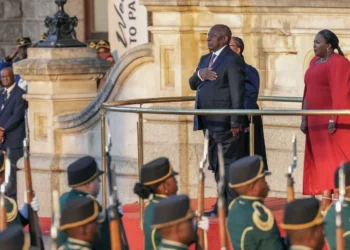The COVID-19 pandemic has had an observably huge impact on the aviation industry due to border closures, travel restrictions and cancelation of flights to control the spread of the virus.
A combination of these have led to a shutdown of airline companies and its associated effects of spike in job losses. Nearly 5 million of Africa’s 7 million aviation and tourism industry-related jobs have been lost in 2020.
Hitherto, Africa’s aviation industry was largely under patronized, and was plagued by market restrictions and high prices, as well as a poor record of safety and security. Of the 200 airlines the EU had blacklisted in 2016, over 50% were African. Some airline companies struggled to remain afloat and the use of advanced technologies in the industry was less exploited.
This notwithstanding, the pandemic provides a silver lining for the industry. Africa’s aviation industry represents a huge but largely untapped market which the airlines need to exploit more fully, with technology and Artificial Intelligence leading the way for expansion, regional development.
“Technology and smart technologies are offering this fantastic opportunity. So, let’s make use of AI, let’s make use of the Internet of Things, let’s capacitate our people to revamp and to rethink our industry, to make sure that both our airports and our airlines cater for the very year near future,” said Dr. Amani Abou Zeid, African Union Commission for Infrastructure and Energy.
He said this during a virtual workshop which was organized by the African Development Bank under the theme, African Aviation Recovery Conference: coordinating an efficient response to the COVID-19 crisis’s effects on the Aviation sector in Africa.
The Bank’s Vice President for Infrastructure, Industrialization and Private Sector, Solomon Quaynor emphasized the importance of the aviation sector to Africa’s long-term goals by making reference to three flagship projects of the AU’s Agenda 2063 that is aimed advancing open skies and closer connectivity.
The discussions also raised questions whether African airlines needed to form mergers in order to be viable, and offered a number of recommendations. These included making use of aircraft leasing and other innovative practices to reduce costs and build efficiencies, making freight operations strengthened and seizing direct opportunities made available due to the need to distribute COVID-19 vaccines across Africa.
“The air transport system is really at the forefront of all our collective objectives to realize Africa as a single economic bloc of 1.3 billion people with a GDP of almost 3 trillion dollars, for which we want to begin to really focus and increase trade among ourselves, as well as investment.”
READ ALSO: AfDB approved $50m to support energy access





















